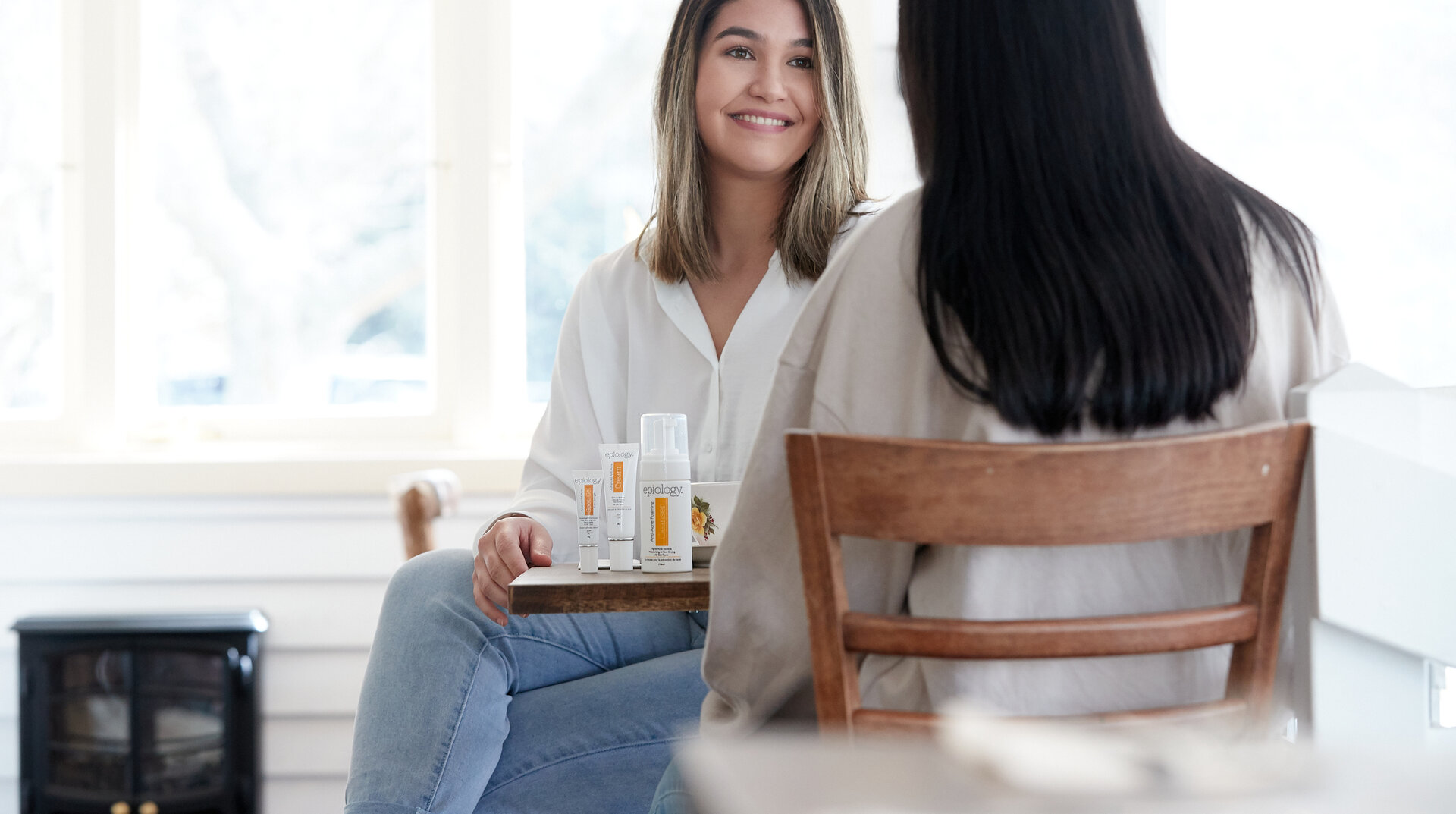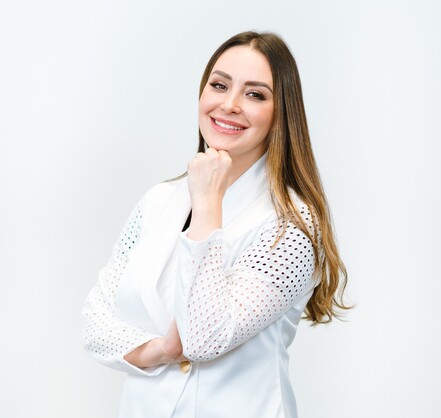While it’s easy to ask Google about the basics of acne and how to handle your skincare issues, it’s always best to talk to the professionals. That’s why we recently caught up with leading professional dermatologist Dr Lola Alvarez, who is based in Mexico with clinics in Mexico City and Monterrey.
Dr Alvarez has been involved in the clinical testing of Epiology’s range of acne products in Mexico, and presenting results at professional conferences around the world.
We put to her some of our burning skincare questions (plus some from our social media followers) – read on to find out what we learned!
What percentage of your patients come to you with acne-related issues?
At least 50% of my patients deal with acne.
What different types of pimples do you see?
We see a few different types of acne, often diagnosing comedones (blackheads and whiteheads), papules, pustules and nodules.
When should we see a dermatologist for skin issues (rather than trying to fix ourselves)?
I recommend seeing a dermatologist as soon as you see changes in your skin. As many of us know, acne vulgaris can have a substantial impact on a person’s quality of life, affecting both self-esteem and psychosocial development, and a dermatologist will have the best tools to help relieve symptoms.
Do your acne patients range in age? Are you seeing any increase in adult acne?
We still see it as more common in those aged between 15 and 18 years. But we definitely see adult acne, especially in women, often as a sign of androgen excess (androgens are groups of hormones).
What is the best thing you can do for your skin (that’s not related to a product)?
It’s all about having healthy habits: Exercise frequently, avoid smoking, enjoy healthy food, and reduce stress levels.
What is the worst thing you can do for your skin?
Use the same products as your friends, or use products recommended by influencers that aren’t right for your skin. Also, touching, squeezing or manipulating pimples!
If you could tell people one thing they should do to look after their skin, what would it be?
I would say use sunscreen; it’s the best anti-aging product, so I recommend people use it every day.
Are there any acne myths or misconceptions you would like to clear up?
Yes, and they are very common ones, like when people say that ‘acne goes away on its own’ so it doesn’t need to be treated – not true! Also, it is not contagious and it often needs individual treatment.
Do you treat acne scarring? If yes, how?
Yes, as a dermatologist I’m focused on treating your skin. We have a range of treatments for acne scars, including one of our popular treatments Laser Resurfx, which is a non-ablative laser with amazing results.
One of my other favourite treatments is Dermapen, which is a microneedling device, which provides a very effective treatment for acne scars.
But we have also peelings, hyaluronic acid for scars, and enzymes.
Should people treat body acne differently to facial acne?
Yes they should, as the area for treatment is bigger and sometimes a little bit difficult to treat. That’s one good reason to go with an expert (dermatologist) for a secure and effective treatment.
What are your favourite acne prevention products?
One of my favourite acne treatments is Epiology, as it uses the natural active ingredient IDP. We use it particularly with our younger patients, and those who are pregnant and breastfeeding, and it has a lot of advantages over other common acne treatments.
What can those with oily skin do during the day to control their skin/oil?
I recommend cleaning your skin twice a day with a mild foam like the Epiology Anti-Acne cleanser, then use a salicylic acid cream or lotion, or Epiology’s Advanced Anti-Acne Cream with a gel oil-free sunscreen. Then at night, on top of Epiology’s range you could look at a retinol derivative cream or glycolic acid at 5 or 10%.
Since the pandemic started, have you seen/treated many patients with maskne (acne caused by wearing a mask for long periods of time)?
Yes, we have seen a lot of this. It is particularly common in doctors, nurses and people wearing masks for more than 6 hours.
What are your recommendations for people wanting to reduce maskne?
I recommend trying to have some breaks during the day to air your skin and cleaning your skin with micellar water on-the-go. If you do develop any pimples and/or irritated skin, start using the Epiology skincare products and of course, visit a certified dermatologist.
Thanks Dr Lola!
Please note:
The health system in Mexico relating to accessing dermatology services differs from New Zealand’s system, as patients do not need to go to their doctor for a recommendation or referral. In New Zealand, usually patients who have acne concerns will initially meet with their GP, who will either offer a solution or make a referral to a dermatologist.


